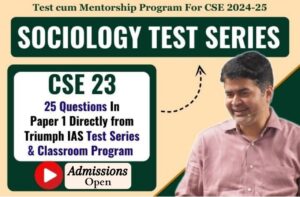
Current Affairs 29 Sep 2023
Today’s News
A milestone in Hindu marriage reform in India
(Current Affairs 29 Sep 2023 | Relevant for GS paper-1, Society)
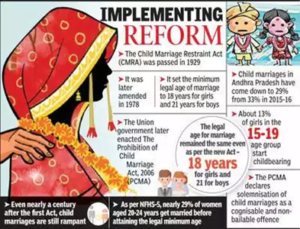
- Nearly 56 years after the enactment of the Hindu Marriage (Tamil Nadu Amendment) Act 1967, young Illavarasan, from Tamil Nadu, never thought that his Suyamariyathai marriage that was performed and validated under this Act could be invalidated and criminalised by the same Madras High Court which, in 1953, in Chidambaram Chettiar vs Deivanai Achi, had declared such marriages to be null and void since they did not follow the Hindu marriage rituals.
- Of course, the ground on which resistance to Suyamariyathai thirumanam (marriage) came up is different today than it was in 1953 when Madras did not have a law to support such radically reformed noritual marriages among Hindus.
- In another case, in 1958, when Rajathi, who had a selfrespect marriage with Chelliah, sought court intervention for restitution of conjugal rights, a district court in Tiruchi denied her the right on the ground that her marriage was invalid under the Hindu Marriage Act, 1955.
- These interpretations were aimed at discrediting reformed marriages, which were typically intercaste weddings performed with the objective of protecting women’s rights and promoting ideals of companionate marriage. These judgments led the judiciary and Brahminic Hindus to demean the self respect marriage practice, labelling women in such marriages as concubines and children born as illegitimate.
- One of the important claims of the self respect movement was that all forms of customary and traditional Hindu marriages, mainly the Brahmanical ones, upheld caste supremacy and the patriarchal rights of men.
- The movement advocated that a man and a woman should enter a dissoluble contract to form a conjugal relationship without conforming to any religious practices.
- Further, in the context of widely practised bigamy among Hindu men, the movement advocated the civil registration of all marriages and upheld women’s rights to dissolve the marriage, remarry, and claim their rights in property.
- The making of this legislation meant a protracted struggle for the Dravidian movement in the Madras Presidency and also at the allIndia level at a time when the Hindu Code Bill was drafted.
- In 1944, when the Hindu Law Committee headed by B.N. Rau was gathering evidence across presidencies to draft the Hindu Code Bill, the memorandums and oral evidence submitted by the leaders and activists of the Self Respect movement demanded not just a few piecemeal changes to Hindu law but also for women’s legal rights over all other concerns of Hindus in general.
- Kunjitham Gurusamy of the Self Respect movement argued that the definition of the ‘Hindu’ was not comprehensive enough to include all those who did not profess the religion, and that nonreligious marriages needed to be recognised under the new Hindu code.
- Clause 7 of the Hindu Marriage Act of 1955 gave importance to ‘Hindu’ rites and ceremonies including the Saptapadi and recognised only customary rites and ceremonies such as thalitying, and not the non ritualistic and anti Purohit Hindu contractual weddings.
- In the case of Chidambaram Chettiar vs Deivanai Achi, the Madras High Court suggested to the Congress party led Madras legislature that it take the initiative to legitimise self respect marriages and protect the property rights of Hindus who had adopted nonreligious marriage practices.
- In 1953, the Madras government decided to introduce the ‘Hindu Non Conformist Marriage Registration Bill, 1954’, but despite it being taken up for consideration, was withdrawn and even rejected by the same government on the ground that the Special Marriage Act 1954 would cover the provisions for self-respect marriages.
- This amendment was radical enough to trouble the Union government (more so in recent years) as much as the judiciary, which was evident in the way they were either rejecting the validity of the amendment or by interpreting the amended Act in such a manner that would discourage non ritual, consensual inter caste marriages.
- Last month, the Supreme Court of India had to remind the Madras High Court on the validity of Suyamariyathai marriage in Tamil Nadu as they are performed without any religious practices and without any public ceremony, but through a declaration of marriage in the presence of relatives, friends, and other persons.
Refresh Basics
Hindu Marriage Act, 1955
It extends to the whole of India, except the State of Jammu and Kashmir, applies also to Hindus domiciled in territories to which the Act extends and those who are outside the said territories.
Key aspects includes:
- It applies to Hindus (in any of its forms or development) and also to Buddhists, Sikhs, Jains and also those who are not Muslims, Christians, Parsis or Jews by religion.
- It does not apply to members of any scheduled tribes unless the Central Government by notification in the official Gazette otherwise directs.
- Provisions in regard to divorce are contained in Section 13 of the Hindu Marriage Act and Section 27 of the Special Marriage Act.
- Common ground on which divorce can be sought by a husband or a wife under these Acts fall under these broad heads:
- Adultery,
- Desertion,
- Cruelty,
- Unsoundness of mind,
- Venereal disease,
- Mutual Consent
- Not being heard of as alive for seven years
Caring for the old : India must attune its policies to ensure the elderly live a life of dignity
(Current Affairs 29 Sep 2023 | Relevant for GS paper-1, Society)
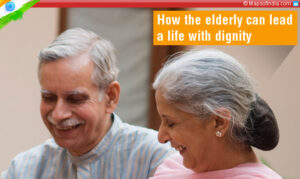
- A good part of the world’s population is growing older, and India mirrors this trend as well. The reality, according tothe United Nations Population Fund’s India Ageing Report 2023, is that the population above 60 years will double from 10.5% or 14.9 crore (as on July 1, 2022) to 20.8% or 34.7 crore by 2050.
- With one in five individuals set to be a senior citizen, there will be implications for health, economy, and society. In Kerala and West Bengal for instance, there is a growing population of the elderly who live alone as children migrate for better opportunities.
- With life expectancy increasing, thanks to better ways to fight disease, and decreasing fertility rates in many countries, including India, there are challenges in nurturing an expanding elderly population.
For example, women elderly citizens outnumber their male counterparts. At 60 years, a person in India may expect to live another 18.3 years, which is higher in the case of women at 19 years compared to men at 17.5 years. If women in India, where labour force participation is low at 24%, do not have economic and social security, they will become more vulnerable in old age.
- There are also significant inter State variations. Most States in the south reported a higher share of the elderly population than the national average in 2021, a gap that is expected to widen by 2036. While States with higher fertility rates, such as Bihar and Uttar Pradesh, expect to see an increase in the share of the elderly population too by 2036, the level will remain lower than the Indian average.
- Overall, more than two fifths of the elderly are in the poorest wealth quintile — ranging from 5% in Punjab to 47% in Chhattisgarh; also, 18.7% of the elderly do not have any income. A high proportion of the rural population is among the elderly and often economically deprived.
- The National Policy on Older Persons, 1999 and the Maintenance and Welfare of Parents and Senior Citizens Act, 2007 lay downthe care of the elderly but to ensure that senior citizens live in dignity, public and private policie-s must provide a more supportive environment.
Refresh basics
The National Policy on Older Persons (NPOP)
The National Policy on Older Persons (NPOP) was announced in 1999 to reaffirm the commitment to ensure the well-being of older persons. The Policy envisages State support to ensure financial and food security, health care, shelter and other needs of older persons, equitable share in development, protection against abuse and exploitation, and availability of services to improve the quality of their lives.
Other Schemes of government
1. Central Sector Scheme of Integrated Programme for Senior Citizens (IPSrC):
The Ministry of Social Justice and Empowerment implements a Central Sector Scheme of Integrated Programme for Senior Citizens (IPSrC) under which grants in aid are given for running and maintenance of Senior Citizens Homes (Old Age Homes)/ Continuous Care Homes, Mobile Medicare Units etc. to the Implementing Agencies (IAs) such as State Governments / Union Territory Administrations (through Registered Societies)/ Panchayati Raj Institutions (PRIs) / Local bodies; Non-Governmental/Voluntary Organizations.
2. Rashtriya Vayoshri Yojana (RVY):
Rashtriya Vayoshri Yojana (RVY) is a Central Sector Scheme funded from Senior Citizens’ Welfare Fund. Under the Scheme of RVY, aids and assistive living devices are provided to senior citizens belonging to BPL category or those senior citizens who earn less than 15000/- per month and suffer from age related disabilities such as low vision, hearing impairment, loss of teeth and loco-motor disabilities. The aids and assistive devices viz. walking sticks, elbow crutches, walkers/crutches, tripods/quadpods, hearing aids, wheelchairs, artificial dentures and spectacles are provided to eligible beneficiaries, free of cost. The Scheme is being implemented by Artificial Limbs Manufacturing Corporation of India (ALIMCO) which is a Public Sector Undertaking under the Ministry of Social Justice and Empowerment.
3. National Helpline for Senior Citizen (14567)- Elder line:
The Ministry has set up the National Helpline for Senior Citizen for senior citizen to address the grievance of the elders. The helpline has been launched across the country and has been dedicated to the Nation by the Hon’ble Vice President of India on the occasion of the International Day for Older Persons i.e. on 01st October, 2021. The Elder line offers services to the senior citizens through toll free number 14567.
4. State Action Plan for Senior Citizens (SAPSrC):
Appreciating the critical and significant role of States/UTs, each State/UT is expected to plan and strategize taking into account their local considerations and frame their own State Action Plans for the welfare of their senior citizens. This State Action Plan may comprise a long-term strategy for five years as well as Annual Action Plans. Department of Social Justice and Empowerment shall release funds to the States/UTs for formulation and implementation of their State Action Plans.
5. SAGE:
To promote out-of-the-box and innovative solutions for the commonly faced problems, innovative start-ups will be identified and encouraged for developing products, processes and services for the welfare of the elderly under this initiative. The selected start-ups/start-up ideas can be provided equity support of up to Rs.1 crore per project while ensuring that the total Government equity in the start-up should not exceed 49%. For this, the SAGE portal has been launched on 04/06/2021.
Under Umbrella Scheme of Atal Vayo Abhyuday Yojana, Ministry has included awareness generation/sensitization programmes with school/college students for strengthening Inter-generational bonding. It also aims to provide information and educational material to individuals, families and groups for better understanding of the ageing process so as to enable them to handle issues relating to it.
What is the ‘Five Eyes’ intelligence alliance?
(Current Affairs 29 Sep 2023 |Relevant for Prelims)
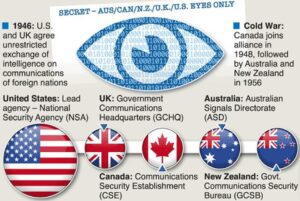
- The recent allegations by Canadian Prime Minister Justin Trudeau linking the killing of Khalistani leader Hardeep Singh Nijjar on Canadian soil to the Indian government have put the spotlight on the intelligence sharing alliance ‘Five Eyes’, which is believed to have provided the information that “helped” Canada.
- The ‘Five Eyes’ is a multilateral intelligence sharing network of five countries, Australia, Canada, New Zealand, the U.K. and the U.S. It is both surveillance based and tracks signals intelligence (SIGINT).
- Intelligence documents shared between the member countries are classified ‘Secret—AUS/CAN/NZ/UK/US Eyes Only,’ which gave the group its title ‘Five Eyes.’ The alliance between the U.S. and the U.K. evolved around the Second World War to counter the Cold War Soviet threat. The two countries, which had successfully deciphered German and Japanese codes during the war, forged a collaboration to share intelligence related to signals such as radio, satellite and internet communications.
- The treaty called the British U.S. Communication Intelligence Agreement, or BRUSA (now known as the UKUSA Agreement), was signed between the State Army Navy Communication Intelligence Board (STANCIB) of the U.S. and the London Signal Intelligence Board (SIGINT) of Britain.
- Though the intelligence alliance came together in the 1940s, it remained a top secret for long. The then Australian PM Gough Whitlam did not know about the existence of BRUSA, regarded as one of the most secret agreements, until 1973, according to a recent article in the Journal of Cold War Studies.
- Initially, the partners are assigned respective SIGINT mandates. A Canadian intelligence officer writes in a military journal (2020) that the U.S. is responsible for Russia, northern China, most of Asia and Latin America; Australia covers southern China, Indo China and its close neighbours, such as Indonesia; the U.K. is in charge in Africa and west of the Urals within the former Soviet Union; and New Zealand is responsible for the Western Pacific, while Canada handles the polar regions of Russia.
- There have been several concerns regarding the privacy, security and methods of working of the intelligence alliance, which remained shrouded in mystery for long.
MGNREGS social audit unit in a state of paralysis in many States
(Current Affairs 29 Sep 2023 | Relevant for GS Paper-2, Prelims)
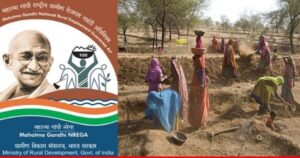
- An enduring criticism against the Mahatma Gandhi National Rural Employment Guarantee Scheme (MGNREGS) is its alleged high rate of corruption. But the scheme’s inbuilt mechanism to combat it, the social audit units meant to detect any cases of malpractice, seems to have failed.
- As per the statistics available with the Union Rural Development Ministry in the ongoing financial year, less than 14% of the amount flagged by the auditors has been recovered so far.
- In the ongoing financial year, the social audit units have flagged misappropriation of ₹27.5 crore. After action was taken in some of these cases, the amount came down to ₹9.5 crore out of which only ₹1.31 crore has been recovered so far, a mere 13.8% of the total.
- The financial year 2022 23 has a similar story; after taking rectifying measures, the recoverable amount was pegged at ₹86.2 crore but the recovery amounted to only ₹18 crore, just 20.8% of the total.
- Section 17 of the Act governing the scheme says that the gram sabha “shall monitor the execution of works”. Each State has social audit units that aresupposed to work independently of the implementing authorities.
- A bleak picture emerged at the seminar, of fund starved social audit units, working without training or adequate personnel. The social audit unit’s sole responsibility is to flag cases of malpractice.
- A dismal recovery rate threatens the credibility of the audit process since it makes the entire exercise futile, said Rakshita Swamy, Social Accountability Forum for Action and Research (SAFAR).
Refresh Basics
MGNREGA
- MGNREGA is one of the largest work guarantee programmes in the world launched in 2005 by the Ministry of Rural development.
- The primary objective of the scheme is to guarantee 100 days of employment in every financial year to adult members of any rural household willing to do public work-related unskilled manual work.
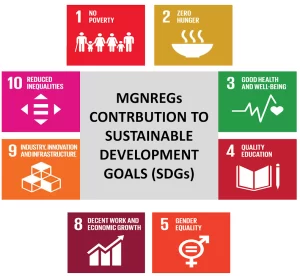
- As of 2022-23, there are 15.4 crore active workers under the MGNREGA.
- Legal Right to Work: Unlike earlier employment guarantee schemes, the act aims at addressing the causes of chronic poverty through a rights-based framework.
- At least one-third of beneficiaries have to be women.
- Wages must be paid according to the statutory minimum wages specified for agricultural labourers in the state under the Minimum Wages Act, 1948.
- Demand-Driven Scheme: The most important part of MGNREGA’s design is its legally-backed guarantee for any rural adult to get work within 15 days of demanding it, failing which an ‘unemployment allowance’ must be given.
- This demand-driven scheme enables the self-selection of workers.
- Decentralised planning: There is an emphasis on strengthening the process of decentralisation by giving a significant role in Panchayati Raj Institutions (PRIs) in planning and implementing these works.
- The act mandates Gram sabhas to recommend the works that are to be undertaken and at least 50% of the works must be executed by them.
Ministry of Tourism Launched ‘Travel for Life’
(Current Affairs 29 Sep 2023 |Relevant for Prelims)
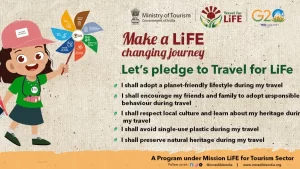
- Ministry of Tourism, Government of India, organized the Global Launch of ‘Travel for LiFE’ program on World Tourism Day 2023 (27th September). The program is a part of Mission LiFE and aims to promote sustainable tourism.
- Partners include the Ministry of Environment, Forest and Climate Change (MoEFCC),United Nations World Tourism Organisation (UNWTO), and United Nations Environment Program(UNEP).
- The program includes two verticals: Travel for LiFE for Cleanliness and Travel for LiFE for Rural Tourism.
- It aligns with Sustainable Development Goals (SDGs) related to economic growth, sustainable cities, responsible consumption, climate action, and life below water.
Related Blogs…
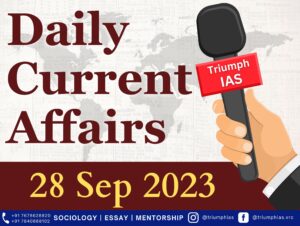 |
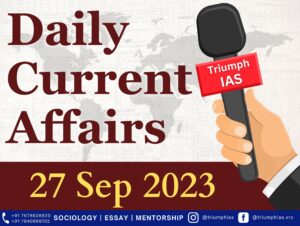 |
GS Related Practices Question…
To master these intricacies and fare well in the Sociology Optional Syllabus, aspiring sociologists might benefit from guidance by the Best Sociology Optional Teacher and participation in the Best Sociology Optional Coaching. These avenues provide comprehensive assistance, ensuring a solid understanding of sociology’s diverse methodologies and techniques.
Current affairs 29 September 2023, Current affairs 28 September 2023,Today news, Today news GS, Today news upsc, Today news and views, Today news 2023, Today news Current affairs September 2023, Current affairs news, Current affairs book pdf, Current affairs best blog, Current affairs for UPSC, Current affairs 2023, Current affairs contact, Current affairs book, Current affairs program meaning

Choose The Best Sociology Optional Teacher for IAS Preparation?
At the beginning of the journey for Civil Services Examination preparation, many students face a pivotal decision – selecting their optional subject. Questions such as “which optional subject is the best?” and “which optional subject is the most scoring?” frequently come to mind. Choosing the right optional subject, like choosing the best sociology optional teacher, is a subjective yet vital step that requires a thoughtful decision based on facts. A misstep in this crucial decision can indeed prove disastrous.
Ever since the exam pattern was revamped in 2013, the UPSC has eliminated the need for a second optional subject. Now, candidates have to choose only one optional subject for the UPSC Mains, which has two papers of 250 marks each. One of the compelling choices for many has been the sociology optional. However, it’s strongly advised to decide on your optional subject for mains well ahead of time to get sufficient time to complete the syllabus. After all, most students score similarly in General Studies Papers; it’s the score in the optional subject & essay that contributes significantly to the final selection.
“A sound strategy does not rely solely on the popular
Opinion of toppers or famous YouTubers cum teachers.”
It requires understanding one’s ability, interest, and the relevance of the subject, not just for the exam but also for life in general. Hence, when selecting the best sociology teacher, one must consider the usefulness of sociology optional coaching in General Studies, Essay, and Personality Test.
The choice of the optional subject should be based on objective criteria, such as the nature, scope, and size of the syllabus, uniformity and stability in the question pattern, relevance of the syllabic content in daily life in society, and the availability of study material and guidance. For example, choosing the best sociology optional coaching can ensure access to top-quality study materials and experienced teachers. Always remember, the approach of the UPSC optional subject differs from your academic studies of subjects. Therefore, before settling for sociology optional, you need to analyze the syllabus, previous years’ pattern, subject requirements (be it ideal, visionary, numerical, conceptual theoretical), and your comfort level with the subject.
This decision marks a critical point in your UPSC – CSE journey, potentially determining your success in a career in IAS/Civil Services. Therefore, it’s crucial to choose wisely, whether it’s the optional subject or the best sociology optional teacher. Always base your decision on accurate facts, and never let your emotional biases guide your choices. After all, the search for the best sociology optional coaching is about finding the perfect fit for your unique academic needs and aspirations.
To master these intricacies and fare well in the Sociology Optional Syllabus, aspiring sociologists might benefit from guidance by the Best Sociology Optional Teacher and participation in the Best Sociology Optional Coaching. These avenues provide comprehensive assistance, ensuring a solid understanding of sociology’s diverse methodologies and techniques. Sociology, Social theory, Best Sociology Optional Teacher, Best Sociology Optional Coaching, Sociology Optional Syllabus.
Best Sociology Optional Teacher, Sociology Syllabus, Sociology Optional, Sociology Optional Coaching, Best Sociology Optional Coaching, Best Sociology Teacher, Sociology Course, Sociology Teacher, Sociology Foundation, Sociology Foundation Course, Sociology Optional UPSC, Sociology for IAS,
Follow us :
🔎 https://www.instagram.com/triumphias
🔎https://www.youtube.com/c/TriumphIAS
🔎https://t.me/VikashRanjanSociology
Find More Blogs
| Compare and contrast Karl Marx’s and Max weber’s | Karl Marx- Historical Materialism |
| Talcott Parsons : Social system | Scope of the subject and comparison with other social sciences |

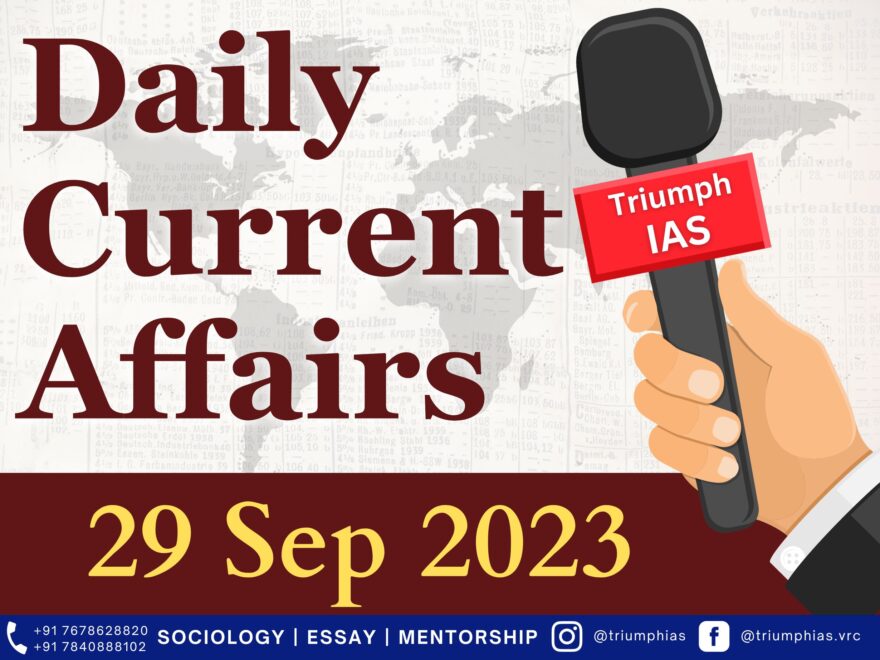

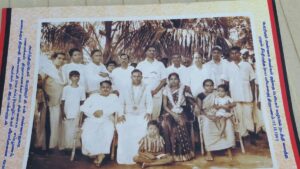
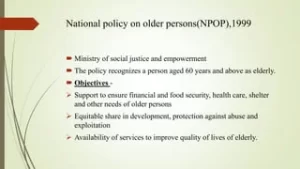
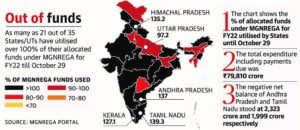
2 comments